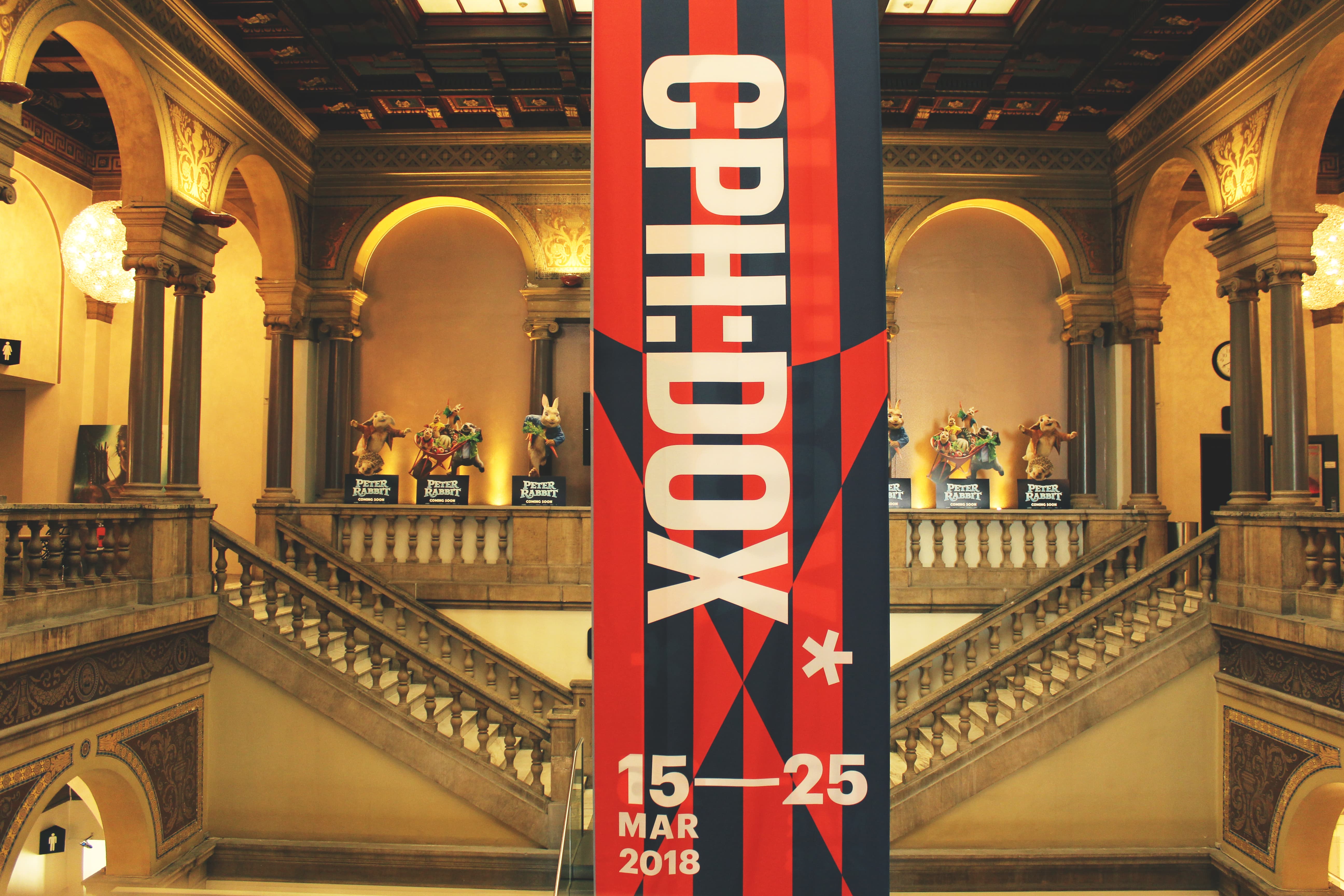CPH:DOX 2018, documentaries to widen our horizon
The(Y) Volunteers team spent a week in Copenhagen to give our contribution as volunteers at Copenhagen International Documentary Film Festival, CPH:DOX 2018. From 13th to 20th March 2018, we had the chance to experience the international dimension of CPH:DOX festival in the hearth of the Danish capital. Amused by its relaxed, yet lively multicultural environment, we share with you the highlights of this experience and a selection of inspiring films from CPH:DOX 2018 to widen our horizon.
CPH:DOX
Founded 15 years ago, CPH:DOX is nowadays recognized as one the most important documentary film festival in the world, with a program that ranges from the works of major international directors to the most experimental and innovative productions. A cultural proposal that aims to explore the relation between film, journalism, technology, science, art and new media and to go beyond their traditional boundaries. CPH:DOX also wants to create a space for reflection and dialogue among people, while contributing to social transformation with new, fresh perspectives on the world. This year edition offers more than 200 documentaries, talks and debates organized within sections and thematic programmes focusing on politics, society, justice, art, science and tech. Some of the nominated works that impressed us most are the following.
DOX:Award | Extinction, by Salomé Lamas
12 films have been selected by CPH:DOX’s to compete for the DOX:Award, the best international documentary film of this year. All of them “expand the way that contemporary documentary relates to reality”. Worthy to mention is the film Extinction (2018), a cinematographic essay by the Portuguese director Salomé Lamas about former USSR countries through the eyes of the young Kolya, citizen of Transnistria. The film offers a black and white impressing point of view on forgotten conflicts of the 20th Century and the lands which suffer by its consequences the most.
New:Vision Award | Wild Relatives, by Jumana Manna
New:Vision Award showcases groundbreaking experiments in the area between documentary filmmaking and research-based artistic practice. Among the nominees, we mention Wild Relatives (2018), by the American director Jumana Manna. A movie which reveals the political and environmental relationship between places far away from each other both geographically and culturally: Norway and the Middle East, the world’s grain banks. Seeds play an important role in the world’s biodiversity and surprisingly enough, in international politics, too.
F:ACT Award | Kailash, by Derek Doneen
Our choice in F:ACT Award, a competition between documentary filmmaking and investigative journalism, is Kailash (2018), whose protagonist is a guy with an homonymous name. Derek Doneen’s documentary stresses the importance of freeing the world from the child slavery, a cause which Kailash Satyarthi supports incredibly when he saved more than 85,000 children. The Indian frontman of ‘Save the Childhood Movement’ gives hope to the world not just through this inspiring and emotional movie shot.
Nordic:Dox Award | Eastern Memories, by N. Kullström and M. Kaartinen
Nordic:Dox Award selects the best films from the Nordic countries. Ranging from the poetic to the political, these works testifying the experimentalism of Northern Europe. Neverthless, the film which caught our eyes is situated, surprisingly enough, in Asia. In Eastern Memories (2018), two Finnish filmmakers – the duo Niklas Kullström and Martti Kaartinen – took a close look at G.J. Ramstedt’s personal expedition to Japan and Central Asia in the beginning of the 20th Century. From his diary we see how the Nordic explorer could probably feel in the Mongolian steppes or Japan. Highly recommended for travel addicts!
Next:Wave Award | Harmony, by Frederick Paxton
Next:Wave Award is dedicated to “emerging filmmakers with the courage to take chances”. Frederick Paxton is definitely a director with the courage, however his film Harmony (2018) speaks about the youth in the Russian town of Chelyabinsk and its desire to accomplish feminine and masculine ideals. The perfect example which Paxton shows us are the two most acclaimed Russian sports: ice hockey and rhythmic gymnastics.
Politiken Audience Award | The distant barking of dogs, by Lereng Wilmont
CPH:DOX celebrates its compromise with freedom of expression in Politiken Audience Award. Moving and memorable, The distant barking of dogs (2018) brought us in the Donetsk region of eastern Ukraine, a warzone that echoes with anti-aircraft fire and missile strikes. Here lives Oleg, a 10-year-old boy, and his grandmother, who refused to quit their home. Lereng Wilmont’s camera portrayed their life for a year and witnessed the gradual erosion of a child innocence beneath the pressures of the ongoing Ukrainian-Russian war.
CHANGE | Guardians of the Earth, by Filip A. Malinowski
COP 21, the Paris Agreement on climate change, is known as a milestone in human history. For the first time in 21 years, 195 nations and 20.000 negotiators committed to take action in the last attempt to save our planet. Guardians of the Earth (2017), a documentary by Filip A. Malinowski, gives an insight behind closed doors revealing personalities and forces shaping our future.
Last but not least, hoping that you’ll enjoy watching some of the documentaries we included in our selection based on CPH:DOX 2018, we share with you this quote by the Argentinian director Raymundo Gleyzer (also attributed to Ernesto Ardito, co-director of the multi-awarded documentary Raymundo):
“We think of film as a bullet that ignites consciousness. We must serve as the stone that breaks silence, or the bullet that starts the battle. Poetry is not a goal in itself. Among us poetry is a tool to transform the world.”









